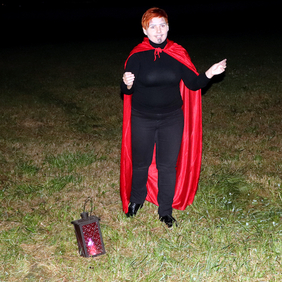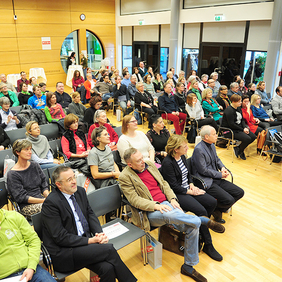I was looking forward to it.
The CIG course was very inspiring, practical, demanding, pleasant, interesting, useful. We learnt a lot and had fun at the same time! For me it was a breakthrough for one more reason: It offered some theory to my practice!
One of the special features of this experience was evaluating the course itself. This isn’t usual in Greece (!) and no one expected any follow-up. But… surprises happen all the time!
One of the comments commonly heard at the end of the course was that we need this training to continue, expand and develop. And guess what ? It did!
When the invitation appeared on my screen I was thrilled!
Hey, they did it! They listened to our ‘request’. We will meet again.
Refresh.
Different ways to see and do things
This time the schedule was different. It lasted the best part of two packed days (exhausting!!) but was run at a relaxed pace.
First, one of us used all the knowledge from the course to do an Interpretive Walk through Athens central ‘national’ park. During the walk we were able to remember all the tools, the principles, the themes and the terms we had learnt.
Then there was time for inspiration, such as different ways of guiding (by the volunteer guides of the ‘This is my Athens’ initiative) , different ways of feeling, by using all our senses (at the ‘Shapereader’ art project), different ways of approaching environmental and social issues through games, and ways to get in touch with children (at the innovative kindergarten ‘παιχνιδαγωγείο’). ‘Different ways to see and do things’ could have been the title of our meeting.
We experienced how you can describe things to blind people, how you can guide them through paths and at the same time we realized how powerful and detailed touching can be. We grasped how ‘personal’ a guided tour can get, how many different aspects of life it can include and how it is another way to make guiding a full and memorable experience even when you omit historical events, names or dates. We even became children for a while. We had the chance to think about alternative ways of teaching kids, having the verb ‘play’ as our basic rule.
This 2-day workshop was built up to inspire and not to ‘teach’. But, after all, isn’t that the real way to learn?
The conclusion
– We met again! The connection between us, the friendships and the nice memories help our job. We met with guides from all over Greece with the same ideas about guiding and a common communication code. We exchanged and supplemented each other’s thoughts.
– We revised all the things we had learnt months ago. ‘Revising is mother of learning’ says a Greek proverb.
– We felt, realized, understood that the Interpret Europe CIG course wasn’t just another course but a different approach that will be with us… forever! It is not something static that only happens once, but an improving and long-lasting process that can go on as long as we want it to.
– We met interesting and funny people doing their job differently yet successfully – people with ideas close to our own. Guiding children and guiding tourists is not that different!
– The final evaluation was one of my favourite parts! We talked about what we did, what we liked and what we didn’t. We made comments, expressed feelings and thoughts about what we would have done differently this time, and what we wish to do next time.
– We all agreed in one thing: Once is never enough! We want more, even if this means we have to wait till next year!
So… I am still looking forward!
A note: Last year 2 CIG courses took place in Greece. This ‘reunion workshop’ was open to all those who took part in them. We met in Athens to make it easier for everyone to attend. Our visits and activities took advantage of the qualities and availability that each one of us could offer. That way the cost of the meeting was kept to a minimum and its preparation and planning was a team effort: OUR TEAM’s effort!
To cite this article:
Anastasiadou, R. (2016) ‘Becoming part of interpretive guiding’. In Interpret Europe Newsletter 1-2016, 18-19
Available online:
https://www.interpret-europe.net/fileadmin/Documents/publications/Newsletters/ie-newsletter_2016-1_spring.pdf




